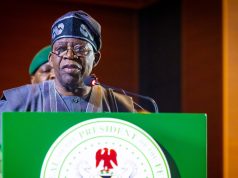The National Pension Commission (PenCom) has raised concern over the growing pension debt in Nigeria’s media industry, disclosing that newspaper owners owe over N720 million in unremitted pension contributions to their employees.
PenCom Director General, Omolola Oloworaran, disclosed the figure during a visit to the President of the Newspaper Proprietors’ Association of Nigeria (NPAN), Kabiru Yusuf, in Abuja.
She described the widespread non-compliance with the Pension Reform Act 2014 among media houses as “very troubling” and called for urgent collaboration to address it.
Under the law, employers are required to remit pension contributions not later than seven days after paying salaries. But Ms Oloworaran said many newspaper organisations failed to do so, accumulating arrears that put workers’ retirement savings at risk.
“We are not focused on being punitive because the law allows us to sanction,” she said. “That is not what we are looking at. I believe we can work together to get all these media houses to make the necessary contributions towards the financial security of their workers.”
While PenCom acknowledged the critical role of the media in shaping public opinion, the commission said it was disheartening that many within the industry were failing to meet their most basic obligation to staff.
The commission singled out Daily Trust as an exception, praising it as a “leading example” for consistently complying with pension requirements since 2015.
Ms Oloworaran’s visit follows PenCom’s ongoing efforts to drive compliance across sectors.
The commission has held similar engagements with the Nigerian Press Council and other regulators as part of a broader strategy to improve pension coverage and enforcement.
According to its latest compliance report, thousands of employers across sectors have defaulted, despite rising pension assets now valued at over N19 trillion.
READ ALSO: NIBSS unveils Next-Generation payment infrastructure – The National Payment Stack (NPS)
Responding to the concerns, NPAN President Kabiru Yusuf did not dispute the figures but urged the commission to consider the economic realities confronting the media.
He said many newspapers are struggling to survive in the face of falling revenues, rising costs, and declining readership.
“The reality is that many newspapers in Nigeria are struggling to even pay staff salaries, let alone pension contributions,” he said. “Only a few are managing to stay afloat, and even among them, there is often reluctance to part with money for statutory payments like tax and pensions.”
He welcomed PenCom’s consultative approach and suggested that the issue be discussed more broadly through the Nigerian Press Organisation (NPO), which includes NPAN, the Nigerian Guild of Editors, and the Nigeria Union of Journalists. He proposed a meeting of stakeholders in Lagos later this year, with PenCom in attendance.
Ms Oloworaran accepted the proposal, expressing hope that such engagement would help drive long-term solutions and bring more media houses into compliance.
Support PREMIUM TIMES’ journalism of integrity and credibility
At Premium Times, we firmly believe in the importance of high-quality journalism. Recognizing that not everyone can afford costly news subscriptions, we are dedicated to delivering meticulously researched, fact-checked news that remains freely accessible to all.
Whether you turn to Premium Times for daily updates, in-depth investigations into pressing national issues, or entertaining trending stories, we value your readership.
It’s essential to acknowledge that news production incurs expenses, and we take pride in never placing our stories behind a prohibitive paywall.
Would you consider supporting us with a modest contribution on a monthly basis to help maintain our commitment to free, accessible news?
TEXT AD: Call Willie – +2348098788999











